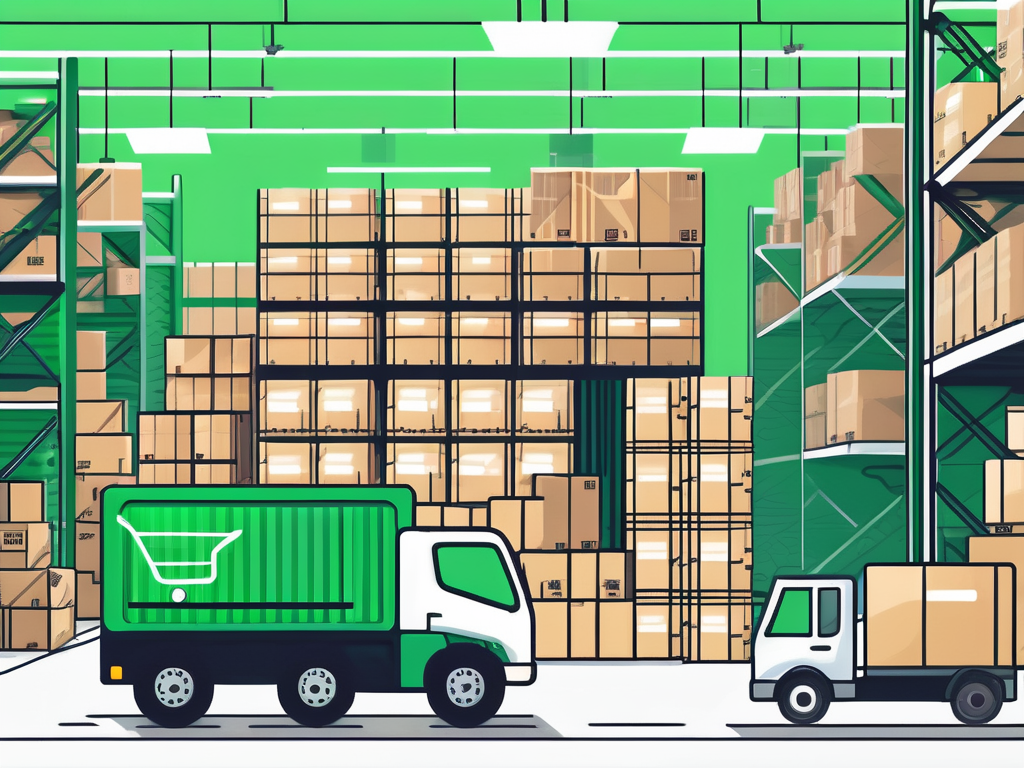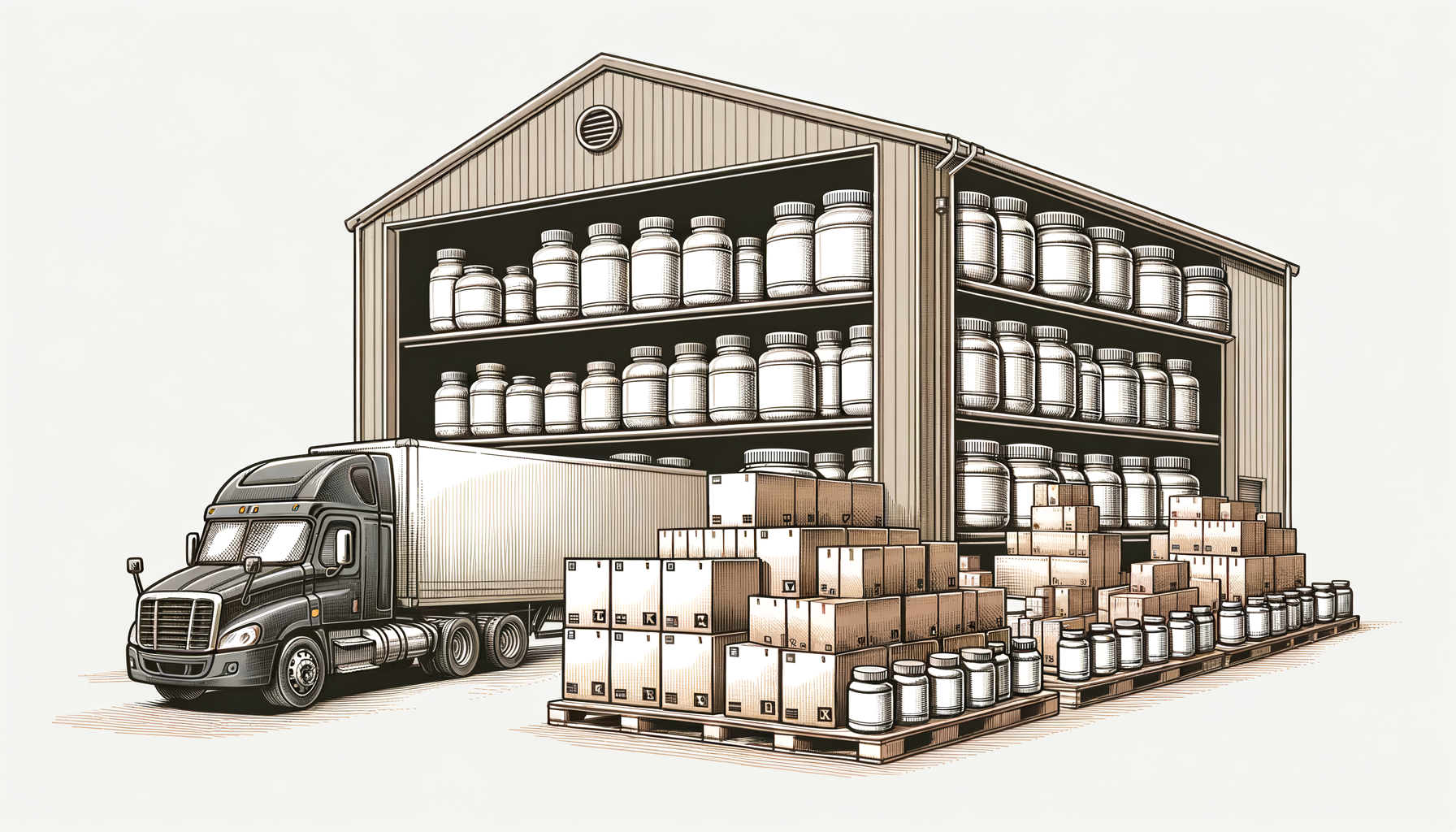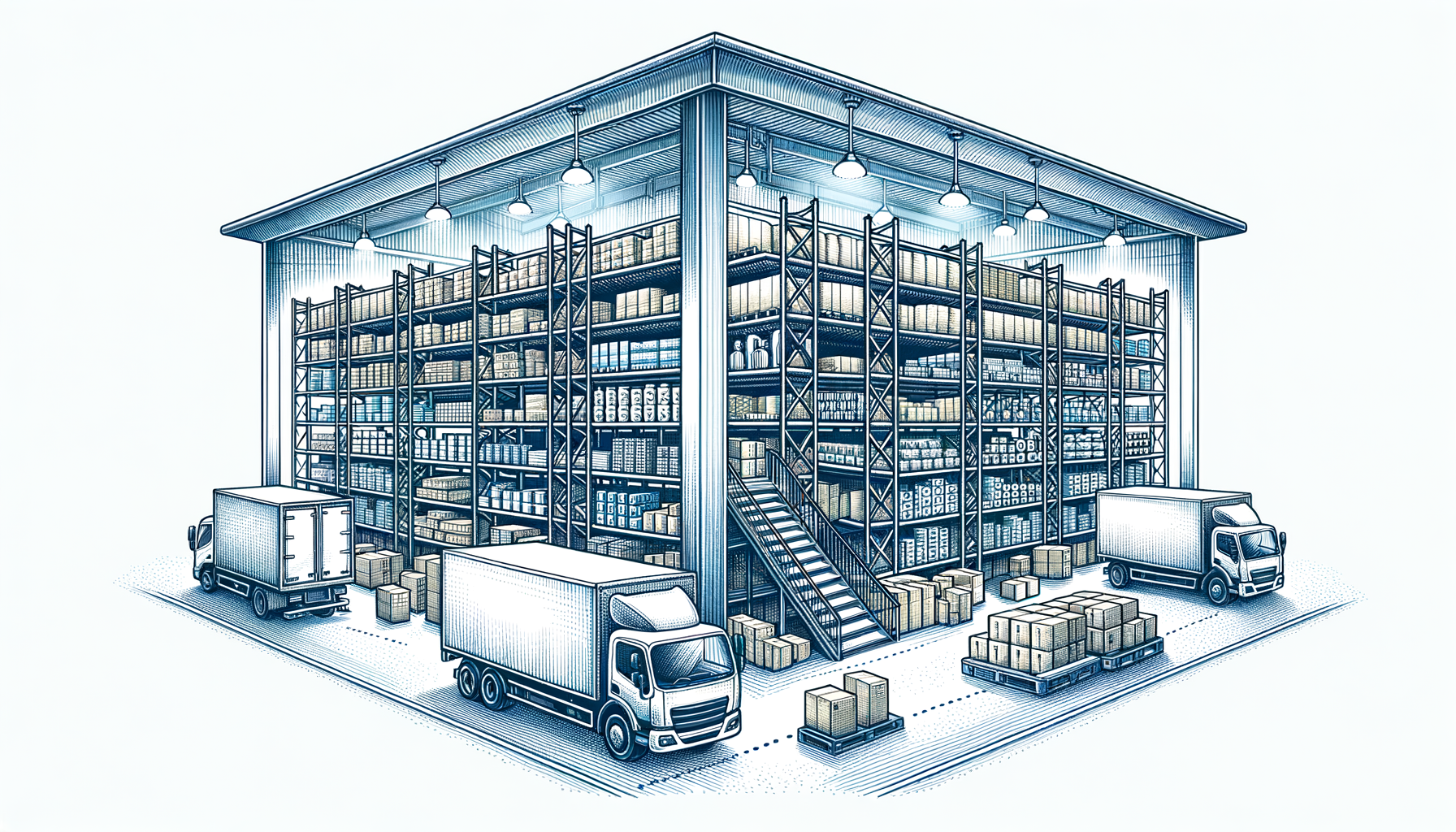Share this
What to Look for In a 3PL Center: Key Features and Services
by Shipfusion Team on Sep. 25, 2024

From order processing to packing accuracy to inventory management, third-party logistics (3PL) providers handle so many pivotal responsibilities for growing businesses. It makes sense to put ample thought into choosing the 3PL center, because they’re truly at the center of it all from an operational standpoint.
The right choice can offer benefits beyond mere cost savings – it can improve efficiency, boost customer satisfaction, and support business growth. This guide explores what to look for when evaluating potential partners to ensure they’re equipped to meet your unique needs and goals.
What Is a 3PL Center?
A third-party logistics center, or a 3PL center for short, is a facility that offers outsourced logistics services to businesses. Responsibilities generally encompass transportation, warehousing, inventory management, and ecommerce fulfillment. The value of a 3PL lies in its ability to help businesses reduce operational costs, improve service levels, and focus on core competencies.
That last point, outsourcing logistics, is particularly attractive for rapidly growing companies. Businesses leverage the expertise and technology of specialized providers to maintain top-notch performance amidst varying operational conditions. Advanced infrastructure makes it possible to further exceed competitors and customer expectations with everything from real-time shipment tracking to special warehouse projects.
The Evolution of 3PL Services
The logistics industry has undergone considerable transformation in recent years. A modern 3PL center combines technology and strategy to deliver on not only its core responsibilities of transportation and warehousing, but also integrated solutions like omnichannel fulfillment, last mile delivery, and consulting services.
As the logistics landscape continues to shift, 3PLs are becoming indispensable partners to businesses of all sizes. They’ll often act as a facilitator of growth as well; with experts focused on implementing, managing, and upgrading fulfillment practices, even small operations can ensure their ability to maintain a competitive advantage over competitors for the long term.
Factors to Consider When Choosing a 3PL Center
While every ecommerce business’ selection criteria for a 3PL center will look a bit different from the next, there are some common factors to keep in mind regardless of your company’s size and industry.
When choosing a 3PL center, ask the following questions.
How Much Experience Does the 3PL Center Have?
When engaging a 3PL center, it’s essential to assess their experience in terms of both years and specialty. Look for providers that have a proven track record with companies similar to yours in the same industry. Experience often correlates with the ability to navigate complex situations efficiently. A 3PL that has dealt with various scenarios over the years is likely better equipped to manage your logistics challenges effectively.
One familiar with the nuances of specific markets, like Last-In, First Out (LIFO) and First In, First Out (FIFO) models for Consumer Packaged Goods (CPG), for example, will deliver more value in reduced spoilage.
Also consider their history of adapting to industry changes and innovations. A 3PL center that has successfully managed logistics for businesses during peak seasons or economic fluctuations is more likely to be able to handle your needs under pressure in the future.
What are the 3PL Center’s Technological Capabilities?
A strong 3PL center should bring cutting-edge tools to the table – ideally at a level of sophistication you’d otherwise have trouble reaching on your own. Look for providers with software that has features like real-time inventory tracking, integrated order management, and automated forecasting. The right tech can make all the difference when looking to scale, and if it comes with an integration for Shopify or any other platform you already use, it can bolster operational efficiency, too.
What's Their Network and Reliability Like?
The geographical reach of a 3PL is another key consideration to keep in mind. You’ll want to evaluate the extent of their network from the standpoints of transportation routes, warehouse locations, and relationships with carriers. Strong marks in all three categories can make a big difference in minimizing shipping times and costs.
It isn’t an overstep to ask for details about who they do business with, either. Any service provider your 3PL is partnered with will inevitably have some degree of influence on the quality of service you receive. Investigating a 3PL's network will help ensure they can meet your distribution needs effectively.
The more trustworthy partners a 3PL has, the better. That way, there are always alternatives should disruptions in the supply chain, such as natural disasters or geopolitical issues, occur. When its 3PL is prepared to maintain service continuity, your business will be, too.
How Does the Pricing Structure Work?
Different 3PL centers may have varying pricing structures based on factors like volume, services offered, and contract length. Some may work on a pay-as-you-go model, while others might require a fixed fee.
Reviewing the terms and conditions closely can reveal any hidden costs that might arise later. Transparent pricing helps in developing a sustainable budget and ensures there are no surprises once the relationship begins.
It’s also wise to inquire about potential fluctuations in pricing based on seasonal demand or changes in service levels, as these can significantly impact your overall logistics budget. Understanding how a 3PL adjusts its pricing in response to market conditions can provide deeper insights into the long-term viability of the partnership.
How Much Cost-Effectiveness and Value Does the 3PL Center Offer?
While costs are a primary consideration, it is equally important to analyze the overall cost-effectiveness of a 3PL. This means weighing the value they bring in terms of service quality, delivery speed, and reliability against their fees.
Instead of opting for the lowest price, consider the potential for improved customer satisfaction and retention, which can ultimately lead to higher revenues. This perspective will help in making a more balanced decision about which 3PL to select.
Evaluating the technology and infrastructure that a 3PL employs can also shed light on their efficiency. Advanced tracking systems, automated warehousing solutions, and data analytics capabilities can all contribute to reducing operational costs and enhancing service delivery. And some factors may matter more to your business than others. Compare how tangible offerings may equate to tangible or intangible value over time.
What Level of Customer Service and Support Does the 3PL Center Provide?
It wouldn’t be an overstatement to say customer service makes or breaks the 3PL experience. Strong communication practices reduce the likelihood of misunderstandings – particularly regarding timelines, expectations, and service levels. Thus, assessing how a 3PL prioritizes communication is an important step in the selection process.
The best providers act as an extension of your team, keeping you informed with real-time updates and providing support when you need it most. Whether it’s a last-minute shipping adjustment or a question about inventory, your 3PL should be as invested in your success as you are. Ask how they handle communication during peak seasons or unexpected challenges to gauge their reliability.
Does the 3PL Center Possess Problem-Solving Readiness?
Logistics can be unpredictable, and hurdles are bound to arise. A 3PL's ability to resolve issues efficiently is crucial for maintaining operational continuity. During evaluations, consider asking for examples of past challenges they successfully handled.
A provider that can exhibit strong problem-solving capabilities will be invaluable when unexpected situations occur, safeguarding your supply chain against potential disruptions.
Does the 3PL Center Embrace Sustainability and Ethical Practices?
Sustainability has become a vital consideration for businesses, especially in logistics. Choosing a 3PL with initiatives like energy-efficient transportation, waste reduction, and sustainable sourcing can reduce environmental impact while meeting customer expectations for responsible practices.
Ethics are just as important. Evaluate how potential 3PL partners handle compliance with regulations, labor practices, and corporate social responsibility. A provider with strong ethical and sustainable practices reinforces your values and protects your business from reputational risks, creating a more resilient supply chain.
Shipfusion Is the Best 3PL Center for Growing Businesses Like Yours
Choosing the best 3PL partner is not just about finding a provider to handle your logistics; it’s about selecting a strategic ally who will enhance your entire supply chain. The right partner will seamlessly integrate with your systems, offer flexibility as your business grows, and provide the level of service that keeps your customers satisfied. Shipfusion stands out as a 3PL that not only meets these expectations but exceeds them. With advanced technology, tailored solutions, and a commitment to ecommerce success, Shipfusion empowers businesses to scale effortlessly while maintaining operational excellence.
Explore how Shipfusion can transform your logistics and take your business to new heights by partnering with a team that truly understands your needs. Contact a Shipfusion expert today to learn more.
Share this
You May Also Like
These Related Articles

Benefits of Using a 3PL for Supplements

The Game-Changing Benefits of Using a 3PL for Health and Wellness

The Key Ingredients of a Successful 3PL Agreement and Partnership
- July 2025 (2)
- June 2025 (22)
- May 2025 (27)
- April 2025 (27)
- March 2025 (26)
- February 2025 (26)
- January 2025 (35)
- December 2024 (16)
- November 2024 (22)
- October 2024 (22)
- September 2024 (27)
- August 2024 (9)
- July 2024 (8)
- June 2024 (5)
- May 2024 (8)
- April 2024 (8)
- March 2024 (6)
- February 2024 (6)
- January 2024 (5)
- December 2023 (3)
- November 2023 (3)
- October 2023 (5)
- September 2023 (4)
- August 2023 (2)
- July 2023 (1)
- June 2023 (4)
- March 2023 (2)
- October 2022 (1)
- September 2022 (5)
- August 2022 (4)
- July 2022 (7)
- June 2022 (4)
- May 2022 (4)
- April 2022 (6)
- March 2022 (2)
- February 2022 (1)
- January 2022 (3)
- December 2021 (2)
- November 2021 (4)
- October 2021 (2)
- September 2021 (5)
- August 2021 (4)
- July 2021 (4)
- June 2021 (3)
- May 2021 (2)
- April 2021 (3)
- March 2021 (3)
- February 2021 (3)
- January 2021 (2)
- December 2020 (4)
- November 2020 (2)
- October 2020 (4)
- September 2020 (2)
- July 2020 (5)
- June 2020 (4)
- May 2020 (2)
- April 2020 (2)
- March 2020 (4)
- February 2020 (1)
- December 2019 (1)
- May 2018 (1)
- March 2018 (2)
- February 2018 (3)
- January 2018 (3)
- November 2017 (3)
- July 2017 (4)
- March 2017 (3)
- February 2017 (5)
- January 2017 (3)
- December 2016 (4)
- November 2016 (6)
- October 2016 (6)
- October 2015 (1)
- September 2015 (1)
- June 2015 (3)
- May 2015 (3)
- August 2014 (1)
- July 2014 (1)
- March 2014 (1)
- February 2014 (1)